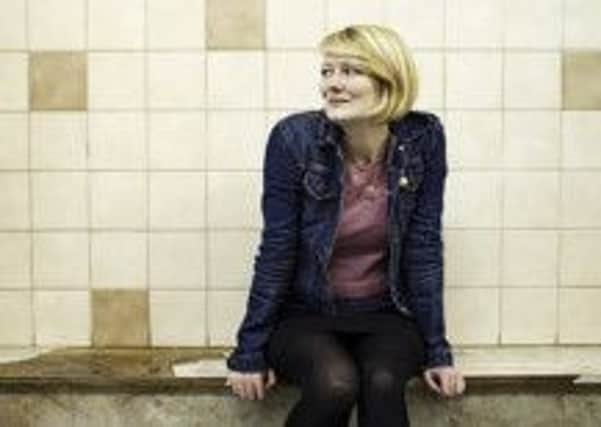Book reviews: Thirst by Kerry Hudson


THIRST
by Kerry Hudson
Chatto & Windus, 336pp, £12.99
In both her novels, male violence and control of women are crucial. In Thirst, though, these aspects of male behaviour are countered by a conventional romance – conventional at least in the sense that it involves two people from different worlds coming together through a chance meeting and falling in love against the odds. The love story at the heart of Hudson’s novel might well be a cliché, but it is invested with enough of her ability to get to the heart of her characters to make it feel much more original.
Alena has come to London from Siberia on a student passport. She’s really only come to find work that will allow her to send money home for care for her ailing mother, who suffers from dementia. But, on her arrival, the friends of her mother she is expecting to meet her turn out to be members of a sex trafficking gang. They steal her passport and money. Alena is subsequently held hostage with other girls, drugged and sold off to a Russian businessman, Andriy, who keeps her in his house, guarded over by his thuggish son, Fedir.
Advertisement
Hide AdHudson doesn’t flinch from the unrelenting horror of this situation – in flashback we learn how she is threatened, humiliated, beaten and raped, and more importantly, exactly what it feels like to be threatened, humiliated, beaten and raped. The only blessing Alena has is that the businessman has kept her for himself, not farmed her out to others as well.
But the novel begins elsewhere: with Dave, a security guard at a London store, who spots Alena shoplifting, after she has been released by Fedir from his father’s house. He lets her go, in an interesting parallel with Fedir’s action: both men are in positions of control over Alena, Fedir through brute force and Dave through Alena’s desperate need. She has nowhere to stay and he is captivated by her: he offers her the bedroom in his tiny flat as he sleeps on the sofa. Dave is, of course, Fedir’s opposite: kind, unsure of himself, damaged by his mother’s untimely death and an unwise hasty marriage made to please her. But his better character doesn’t mitigate the fact that Alena has no power other than to submit to men. She must keep Dave sweet for fear that he will turn her out and she will have nowhere to go (without a passport she cannot get a legitimate job). And she has been forced to do whatever Andriy and Fedir wanted. She has nothing: no autonomy, no identity, no hope.
Thirst is partly a disturbing tale of female powerlessness, where Alena can only be saved by a man in shining armour. What does this tell us about the state of affairs for women today? Hudson writes about the dispossessed, the weak and the powerless facing brutal male domination. Glancing at recent news stories (the kidnapping of Nigerian schoolgirls by Boko Haram, the gang rapes in Pakistan and India, the sentencing to death of women in the Middle East) it’s hard to deny her focus. Dave is jolted out of his day-to-day existence by Alena’s entrance into his life, but he cannot save her. She must do that for herself. But the odds against her seem insurmountable, and unfortunately for her, Fedir, confused enough to believe he loves her, soon tracks her down.
Hudson builds up narrative tension slowly. It’s not so much the will-they-won’t-they tension that is more pervasive to general romance, but rather a sense, even before we know Alena’s back-story fully, of external threat lingering in the air, knocking on the door of Dave’s flat, now a refuge. Inevitably, Alena’s story is so desperate that some kind of love, gentle and expecting little, becomes almost necessary to lift the bleakness. This means that Dave must become the novel’s redeeming feature, a damaged soul who nevertheless hasn’t completely given up hope and who remains good throughout. Thirst is hardly an easy summer read (despite the title and the ridiculously misleading cover). But it is probably an essential one.
• Kerry Hudson is at the Edinburgh book festival on 25 August